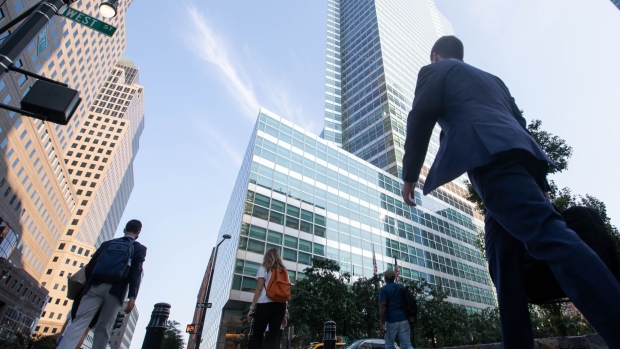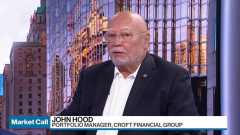Jun 17, 2024
KKR Loads Up on Risky CCC Loans as Other Fund Managers Dump the Debt
, Bloomberg News

(Bloomberg) -- Credit investors are “focusing too much on spreads” and are missing out on bargains further down the credit rating spectrum where they can find better relative value, according to KKR & Co.
“There has been so much focus on how much tighter spreads can go in credit,” the firm’s Chris Sheldon, co-head of credit and markets, and Tal Reback, director, said in a phone interview. “Compelling relative value has become less apparent in this market, and many believe there are limited pockets of opportunity.” But the reality, they said, is that there is still a lot of opportunity, it just isn’t obvious.
KKR is buying CCC loans as they are “purged” from fund managers with less risk appetite, according to a note to clients published Monday coauthored with Kris Novell, a managing director at the firm. Since so much demand has been sucked out of the market, Sheldon and Reback said they believe some parts of the CCC markets are “oversold.”
A contributing factor to the recent CCC loans selloff is the rising number of CLO resets amid tightening triple-A levels, according to the note. That is prompting a “de-risking” of the collateralized loan obligation CCC basket to bring exposures back within or under the 7.5% portfolio limit and contributing to the “non-obvious and compelling” risk to reward for the opportunistic credit investor, they wrote.
So far, the US economy has held up surprisingly well as the Federal Reserve keeps rates pinned higher to tame rising costs. But there are signs of weakness emerging. US consumer sentiment unexpectedly fell to a seven-month low in early June, according to a report Friday. US factory activity, meanwhile, shrank in May at a faster pace than expected. And risks from global elections and geopolitical tension are clouding outlooks.
“It should go without saying, the forward path will continue to be non-obvious in several ways: increased asset dispersion, open macroeconomic questions, increasing geopolitical tensions and a looming US presidential election,” they wrote. “Investing and active risk management is a marathon, not a sprint. It requires moving with the market through intense structural shifts and proactively leaning into the resulting global asset class symbiosis.”
The firm has also been opportunistically adding duration to achieve closer to market neutral versus skewing shorter dated. They said they believe leisure has started to potentially peak as the consumer endures cost pressures, particularly at the lower end.
They are also more cautious on the health care and consumer goods sectors which have been “accruing pressure.” There is also a “growing lack of incentive” to take risk in specific sectors, such as health care, telecom, or media. “These sectors have been experiencing more signs of secular decline due to margin and/or wage compression.”
KKR has more than $230 billion of credit assets under management, the firm’s largest business by that metric.
©2024 Bloomberg L.P.






